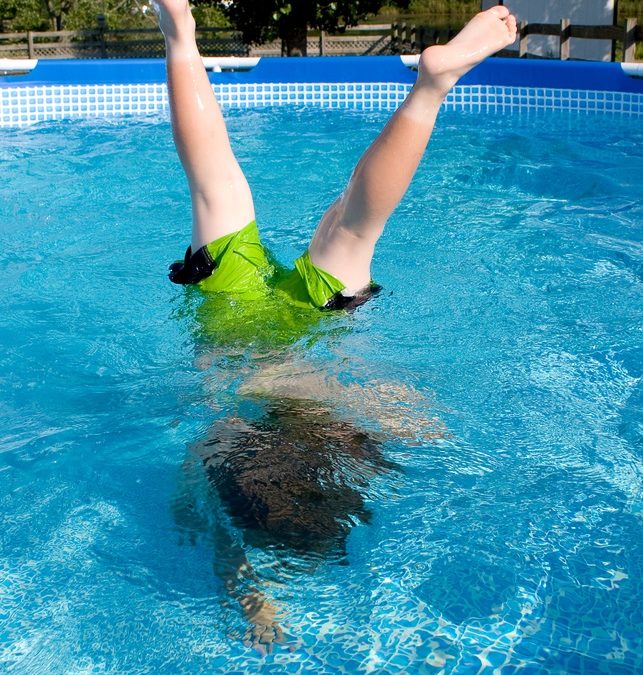Should you get a traditional chlorine pool or a saltwater pool or a freshwater pool? Did you even know there were so many choices? If you’re getting a new pool, should you get saltwater? The answer is a resounding… maybe…! Saltwater pools are prized by many, but they have unique nuances about which you should be aware so you can make an informed decision.
Those who own a saltwater pool swear it provides a host of benefits and well worth the investment. Many opt for saltwater pools because they don’t want to swim in so many chemicals. We have also talked with potential pool owners who are happy with their traditional chlorine-cleaned pools because they see saltwater pools as too much trouble and too expensive.
Dispelling the free from chlorine myth
If you’ve ever been in a saltwater pool, you will notice it does not emit the chlorine smell you would expect from a swimming pool. (note though that chlorine is odorless and if you can smell it, that means the pool has not been properly cleaned and has too much free chlorine. Call a pool contractor if you smell chlorine in your pool.)
Saltwater pools do contain chlorine, but the levels are much lower than those found non “salt” treated pools. That’s because the chlorine is extracted from the salt found in the pool’s water by the salt chlorine generator through a process called electrolysis.
Getting A New Pool? Should You Get Saltwater?
Here are some reasons people decide to invest in saltwater pools

1. Saltwater pools contain lower levels of chlorine compared to freshwater pools, it doesn’t cause your skin and eyes to get irritated. At the same time, the salt in your pool’s water won’t sting your eyes since the amount of salt here is only a fraction compared to what you find in seawater.
2. Regularly bathing in salt water provides health benefits. Salt serves as a natural exfoliant and helps draw out toxins from your skin cells. At the same time, it encourages your skin cells to regenerate and retain moisture. Other health benefits that have been found to be linked to regularly swimming or bathing in salt water include improving blood circulation and boosting your immune system.
3. Saltwater swimming pools are easier to maintain compared to freshwater swimming pools. That’s because your saltwater pool system practically goes into automatic pilot so to speak the moment it’s installed for as long as your chlorine generator is working properly. When the salt water passes through the chlorine generator in your salt water’s pool system, the generator will only break down just enough salt to produce the right amount of chlorine needed to disinfect and clean your pool. That means that there is a continuous and steady supply of chlorine that flows in your pool’s water.
4. Rain is one of the “enemies” of freshwater pool owners, but among saltwater pool owners, rain is a really good friend. Studies show rainwater, especially those that fall in regions near bodies of salt water, contain trace amounts of salt. Although the amounts are not significant, this still provides your pool’s chlorine generator a supply to convert into chlorine to help keep your pool safe and clean.
Here are some reasons people opt out of saltwater pools
Given all of these benefits, it should not be a surprised why salt water pools are becoming increasingly popular. However, this is only one side of the story. The truth is, owning a salt water pool does also have its set of drawbacks.

- Building a saltwater pool in your home cost significantly more than a freshwater pool for two reasons. Salt is highly corrosive. If you want a saltwater pool in your backyard, make sure that all of the materials used in constructing your pool can withstand salt’s corrosive property. Saltwater pool systems are far more complex to install. You will need to hire experienced pool contractors and technicians to help install your saltwater pool system.
- While saltwater pools can save you money from buying pool chemicals and regularly testing your pool water, they can cause a significant increase in your home’s electricity bill. The chlorine generator in your salt water pool’s system is only able to produce chlorine when the pool pump is running. This means that you will need to have both your pool pump and your chlorine generator running for long periods of time to make sure that the chlorine in your pool’s water are within the right levels for it to keep it clean and safe for swimming. Combine this with running your pool’s heater, filter, and other components, this can make a huge impact on your home’s electric bill.
- Saltwater corrodes metals and can pose a serious impact on the environment. Saltwater pools have been found to be linked to soil and water salinity to occur at alarming rates, affecting many species of plants and animals as well as the availability of drinking water. Many cities in the US and other parts of the world have actually considered it to be illegal to build a saltwater swimming pool. If you’re leaning on having one built in your backyard, it’s very important to first check with your local city government.
Saltwater pools have advantages and disadvantages the same as traditional chlorine pools. There is no clear winner at which one is better. At the end of the day, the best way to decide is to carefully weigh both sides and check with local regulations in your area. That way, you will be able to make a sound decision on whether building a salt water swimming pool is truly worth the investment.
Everything about your swimming pool is unique to you and your family so find a pool contractor who listens to you and will work with you to help you realize your dream.

